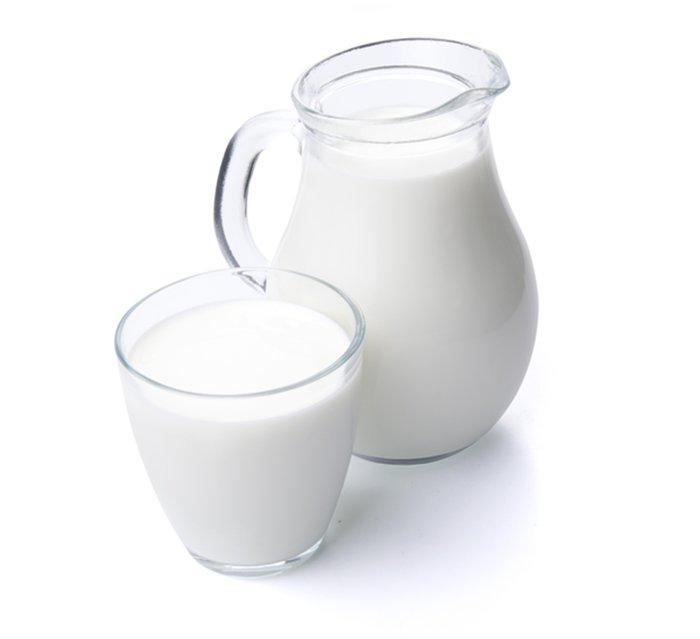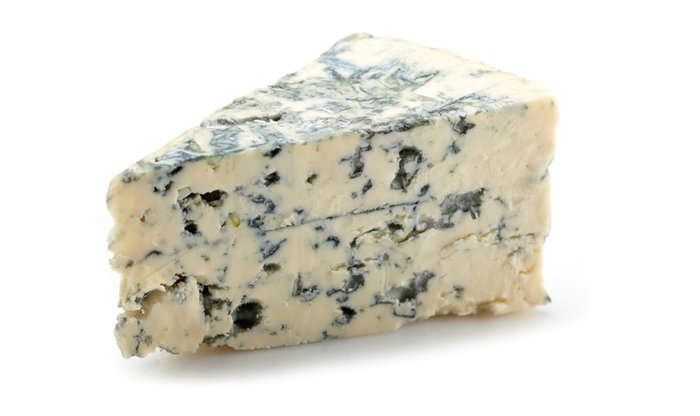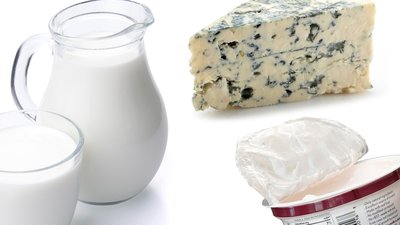Common sense says the difference between different dairy products is just one of degrees. Yogurt, milk, cheese—they're all made of the same proteins, fats, and carbs, just in different ratios. And all things being equal, lower fat is always better…right?
Maybe not. A new study out of Denmark indicates that certain dairy products are better for you and offer unique benefits. Here's what you need to know.
1. Whole-Fat Is Sometimes Better Than Low-Fat
In a new study out of Denmark titled "Whole dairy matrix or single nutrients in assessment of health effects," researchers compared health outcomes among dairy consumers and studies comparing dairy products with other sources of nutrients such as protein and calcium. As they note in their research, "dairy products are a major source of high-quality protein and calcium … however dairy products are also a major contributor to the saturated fat in the diet and have thus been targeted as one of the main causes of cardiovascular disease (CVD)."[1] This conclusion has led to the recommendation of only low-fat or fat-free dairy products.

But when the researchers dug into previous studies of dairy consumption, they found that fat wasn't necessarily the bogeyman it's been made out to be. For example, people who consumed high-fat versions of fermented dairy products such as yogurt showed "a significant 12 percent lower risk" for type 2 diabetes than those who consume low-fat fermented dairy.
Takeaway: The issue with dairy products isn’t so much a question of whether the milk they begin with is high or low in fat, but rather how it is processed on its way to becoming a product on the shelf.
2. To Lose Weight, Drink Whole Milk
When it came to the impact of dairy products on weight loss, the results were just as surprising. The research team reviewed a study of body weight and body composition relative to calcium intake. In the study, one group was given whole cow milk, another group was given soy milk fortified with calcium, a third group was given a calcium-carbonate supplement, and the fourth group served as a control group and was not given any extra calcium.

The researchers found that "the greatest reduction in body weight, BMI, and body fat were in the cow milk group." The research team noted that the milk "reduced hunger and increased feelings of fullness."
Takeaway: You might think that in the battle for weight loss, less fat is always better. Not so! Fat can play an important role in keeping your appetite under control.
3. Cheese Is A Health Food
While looking at the effect of dairy on bone health, the researchers found that cheese was more effective than calcium supplements or calcium plus vitamin D supplements in strengthening bones. In particular, the researchers noted that "fermented dairy products [like cheese] may have a distinct, positive effect on the mineral and bone balance because, in addition to the supply of calcium, phosphorus, and protein, fermented dairy products also contain probiotic bacteria" that may improve the body's ability to absorb calcium.

Somewhat surprisingly—given the other pro-whole-milk conclusions in the study—people who ate cheese also has a lower risk of stroke and cardiovascular disease than people who drank high-fat milk.
Takeaway: It's not always just the nutrient itself that provides the greatest health benefit, sometimes it's the way the nutrient is delivered as part of a whole food. Also: Hooray for cheese!
Dairy: More Than the Sum of Its Parts
Many people look to supplements to make sure they get all the nutrients they need—particularly when it comes to protein and calcium. The Danish researchers concluded that while supplements can play an important role in nutrition, there is a lot to be said for getting your nutrients from whole foods.
The complex structure and combination of minerals and bacteria in different dairy products often provides subtle benefits that can improve your overall health, both in ways we know, and ways we have yet to discover.
References
- Thorning, T. K., Bertram, H. C., Bonjour, J. P., De Groot, L., Dupont, D., Feeney, E., ... & Michalski, M. C. (2017). Whole dairy matrix or single nutrients in assessment of health effects: current evidence and knowledge gaps. The American Journal of Clinical Nutrition, 105(5), 1033-1045.

